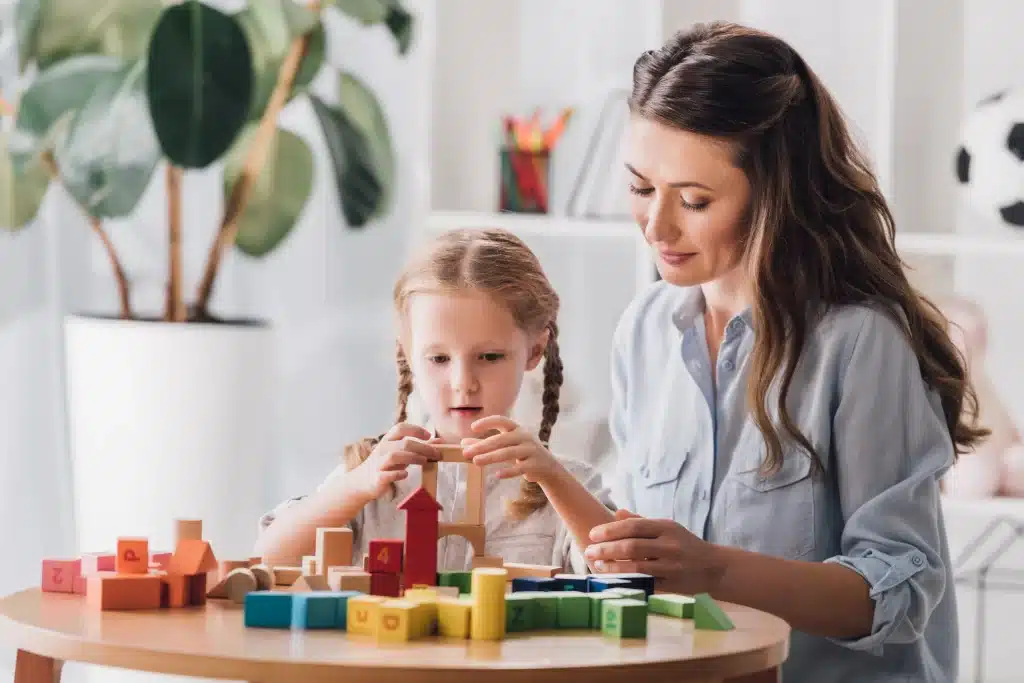How Does Autism Affect Relationships?
Autistic people may have difficulty expressing emotions, making relationships challenging to navigate. Autistic individuals feel the same feelings as everyone else, but sometimes their feelings can be more intense and expressed differently.
People with Autism Spectrum Disorder might find it hard to show or express emotions in ways that are common in today’s social environment. Therefore, some people are often misunderstood and misinterpreted. Autism affects how the brain works and thinks, which is why some Autistic people might have trouble understanding social cues and how they are expected to show their emotions.
In relationships, however, an Autistic partner can enjoy a satisfying friendship or a romantic relationship, with the key being a relationship focused on mutual understanding, support, common interests and communication.
Relationships with Family
As a parent, working on a positive family relationship is a significant aspect of family life. Positive family relationships allow children to feel loved and secure, giving them confidence and support to explore the world around them.
Developing a strong family relationship also gives Autistic children skills to build healthy relationships of their own. Spending quality time together, enjoying fun activities and communicating gives you, as a parent, a chance to see the world from your child’s perspective and constantly learn and understand more about Autstim as well.

Relationships with Carer and Social Worker
Having a consistent carer helps Autistic people achieve goals and feel empowered. Social workers help children with Autism Spectrum Disorder to build capacity and improve overall health and social well-being. However, more important is that social workers are constantly working on building and maintaining trust with the person they care for. Our team at Leaf Complex Care knows that being consistent and being a friendly face is the key to having a strong bond with the person they support.
Romantic Relationships
It’s interesting to see that even today, one of the most common questions asked is whether Autistic people can fall in love.
It’s a common misconception that people with Autism can’t express emotions or feelings. On the contrary, some Autistic people, especially people with high-functioning Autism, have deep empathy, but the difference is that they will show it in a different way. Everyone is different, but an Autistic partner is equally interested in intimate relationships and the physical aspects of a romantic relationship but tend to have a more challenging time navigating dating and interpreting social cues.
Autistic partners are more than capable of developing romantic relationships and love.
Our Impact – The Story of P.
P., living with severe autism and a learning disability, encountered years of improper care, leading to behavioural challenges and deteriorated well-being. His challenging times included psychotic episodes and escalating behaviour.
A remarkable and noteworthy transformation has taken place by fostering trust, providing consistent care and support, and displaying honest commitment within just a few months of receiving person-centred 2:1 support specifically tailored to his needs.
You can read the entire story to learn more about P’s journey with Leaf Complex Care’s care and support.
Challenges of Autism in Relationships and Friendships
Some Autistic people may have social differences compared to neurotypical individuals. Autism is a neurological difference and should be seen as a strength. The feeling of not being accepted can bring challenges when developing relationships and making friends.
Autism affects how people process and interact with the world around them. Therefore, some Autistic people might experience some challenges, such as:
- Difficulty with social and communication skills
- Worrying whether other people will accept their differences
- Difficulty maintaining eye contact
- Struggling with social cues
- Sensory challenges
- Difficulty with social interactions
Building and Maintaining Strong Relationships with an Autistic Person
Luckily, over the past few years, society has made some progress in understanding what Autism is and how an Autistic person experiences the world. However, still, as a society, we need a shift from the medical perspective of Autism as being seen as a “condition” that needs treating but rather focus on people’s strengths, abilities and unique skills.
Maintaining relationships will be much easier if we can do that. The key to every successful relationship is good communication. Although some people with Autism might find communicating difficult, communication is not just about talking. There are many communication styles that can help you express yourself.
For example, writing and drawing to each other may be a great way to show an Autistic person what you mean and how you feel. Learning what your partner wants and what makes them happy is the key to building a long-term relationship.

Overcoming Communication Barriers in Autism and Relationships
Autism Spectrum Disorders primarily affect how a person communicates with others and the world around them. Every person with Autism is unique, and not everyone will have the same barriers to communication, which is why it is essential to challenge your idea of what communication means to you and make yourself understood.
Communication is about more than just talking. A large part of communicating is being able to listen actively and use your facial expressions and body language in the process. Effective communication skills help build stronger bonds with people with Autism. Communicating right can encourage positive behaviour, help build trust and create a more relaxed atmosphere.
Overcoming communication differences can be easily learned, but there are a few tips to make the process simpler:
- Don’t interrupt when someone else is speaking
- Try to use open-ended questions
- Be attentive and interested in the conversation
- Give active feedback
- Clarify your feelings
- Pay full attention
Right of Autistic People to Lead Fulfilling Life
Everyone has the right to a life filled with love and meaningful relationships. We can all benefit from living a happier life, but for some Autistic people, happiness has come secondary to trying to manage behaviour all of the time.
However, living a fulfilled and happy life starts with well-being. A positive sense of well-being makes people feel happy and more adaptable, calm and content. Being happy and fulfilled makes us optimistic and move beyond constantly overcoming challenges.
With awareness about Autism being raised, so are the expectations about what an Autistic person can accomplish. People are starting to realise the incredible power and strength people with Autism can provide. Maybe we will soon see massive progress in the face of diversity and human rights, especially for people with Autism.
Leaf Complex Care Helps Autistic Individuals to Live Fulfilling Lives
Access to a personalised care plan and support can help autistic people build on their strengths and focus on their abilities. Our support workers at Leaf Complex Care provide proactive and compassionate support to autistic people and their families, focused on building independence.
Our team is always there to provide support, encouragement, advice, and access to various community activities that enable a healthy, enjoyable lifestyle. We are committed to providing support and delivering transformative care to empower people to have a better quality of life.
If you or someone you know can benefit from our personalised support, contact us today and see how our support workers can help!

